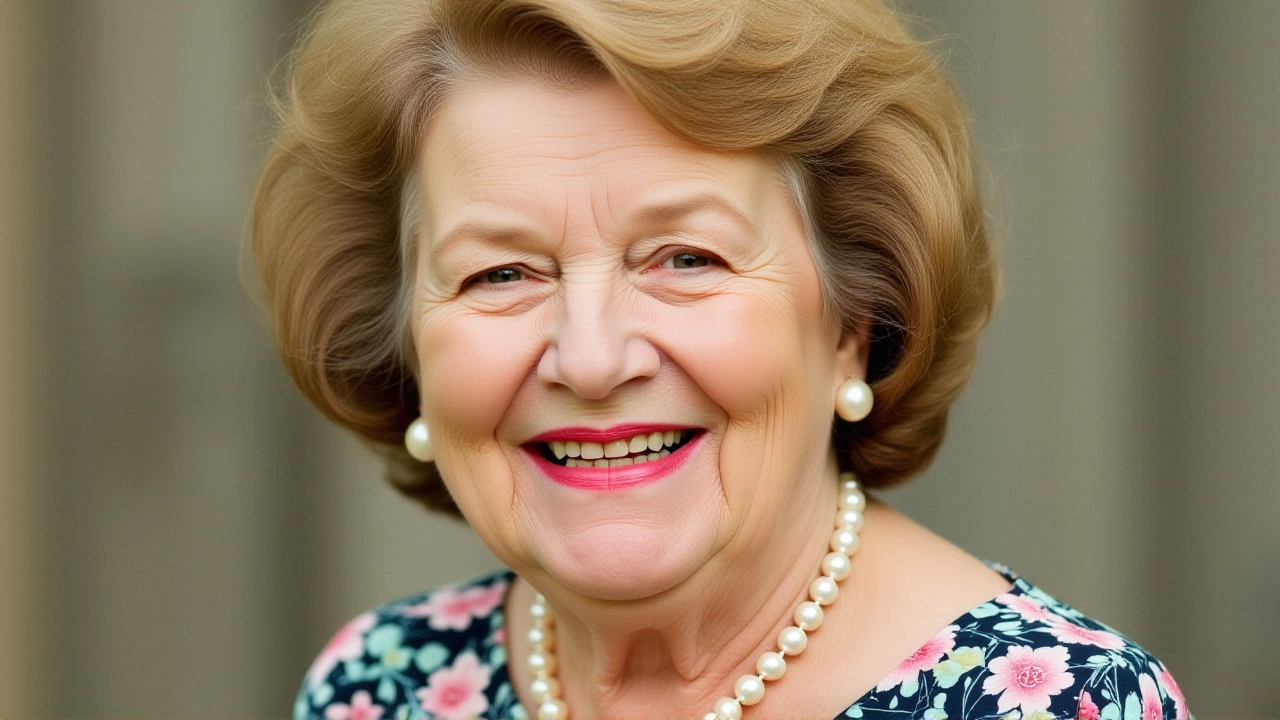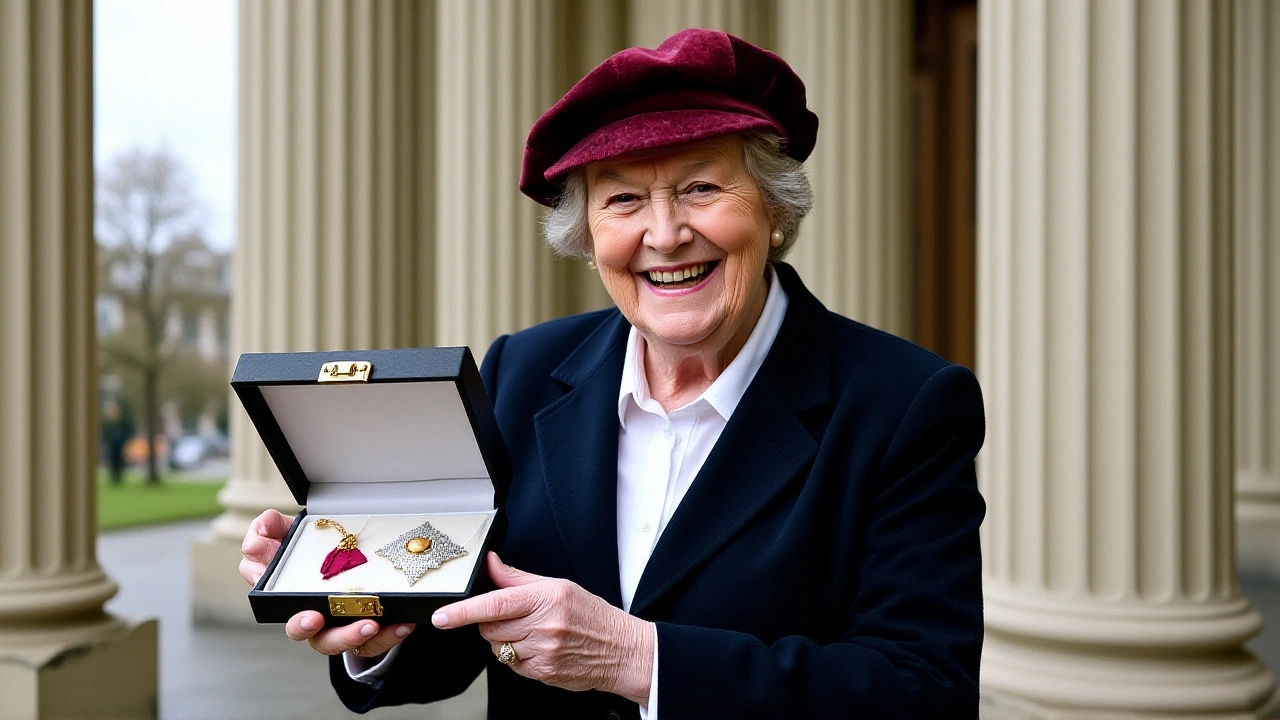When Patricia Routledge, a beloved English actress, comedian and singer, passed away on 3 October 2025 at the age of 96, the nation felt a sudden quiet where her unmistakable laugh once rang.
The iconic Keeping Up Appearances—the BBC sitcom that turned a pretentious suburban housewife into a household name—had been a staple of British television since it first aired in 1990. Routledge, who portrayed the fast‑talking, class‑obsessed Hyacinth Bucket (pronounced “Bouquet”), earned two BAFTA nominations for her performance, cementing her place in comedy lore.
Early Life and Stage Beginnings
Born on 17 February 1929 in Tranmere, Cheshire, Patricia Routledge grew up in a working‑class family that encouraged her love of song. Her first step onto a professional stage came at the Liverpool Playhouse in 1952, where she appeared in a modest revue that hinted at the versatility she would later display.
By 1959, she had made her West End debut in The Love Doctor, a move that caught the eye of producers across the Atlantic. A few years later, she crossed the pond for her Broadway debut in How's the World Treating You? (1966). The role earned her the 1968 Tony Award for Best Actress in a Musical for Darling of the Day, a triumph that demonstrated her strength in both acting and singing.
Television Breakthroughs
The early 1990s brought the role that would define Routledge’s career. Keeping Up Appearances debuted on the BBC on 29 October 1990. Over five series, the show attracted an average of 14 million viewers per episode in the UK and developed a cult following across the United States, Australia and Canada.
Her portrayal of Hyacinth—always insisting the name was pronounced “Bouquet”—was a masterclass in comedic timing. Critics praised her ability to balance snobbery with vulnerability; The Guardian called her performance "a tour de force of class satire." The role also earned her BAFTA TV Award nominations in 1992 and 1993 for Best Light Entertainment Performance.
Routledge was not a one‑hit wonder. From 1990 to 1998 she starred as Henrietta "Hetty" Wainthropp in the detective series Hetty Wainthropp Investigates, showcasing a more grounded, earnest side that won her a new generation of fans. During the same period, she appeared in Alan Bennett’s monologue A Woman of No Importance (1982) and Victoria Wood’s sketch show Victoria Wood: As Seen on TV (1985‑86), further solidifying her reputation as a chameleon of comedy.
Award‑Winning Stage Career
Back on the boards, Routledge continued to collect accolades. In 1988 she captured the Olivier Award for Best Actress in a Musical for her performance in Candide at the Old Vic. Critics noted her “crystalline voice and razor‑sharp wit,” qualities that had become her trademark.
Her film work, while less extensive, included memorable turns in To Sir, with Love (1967) and the farcical Don’t Raise the Bridge, Lower the River (1968). Each role, no matter how brief, carried the same meticulous craftsmanship that defined her stage and television presence.
Honors, Damehood and Philanthropy
In 2017, Queen Elizabeth II bestowed a damehood upon Patricia Routledge for services to drama and charitable causes. The honour, announced in the New Year’s Honours List, reflected not only her artistic achievements but also her decades‑long commitment to charities supporting the arts, children’s hospitals and senior citizens.
Routledge — who had served as patron of the Royal Academy of Music and supported the National Society for the Prevention of Cruelty to Children (NSPCC) — was known to attend fund‑raising galas incognito, always “ready to chat” according to a fellow patron.

Tributes and Legacy
News of her death sparked an outpouring of tributes across social media and traditional outlets. Sir David Attenborough posted, “She made us laugh, she made us think, and she did it with unmatched grace.” Co‑star Jennifer Saunders described Routledge as “the queen of comedic timing, a true mentor to every woman in the industry.”
The BBC announced a special tribute night for 15 October 2025, featuring clips from Keeping Up Appearances, rare stage footage, and interviews with the cast and crew. Fans expect the ceremony to be streamed globally, reflecting the reach of Routledge’s influence.
What Lies Ahead for British Comedy
Routledge’s passing marks the end of an era, but it also raises questions about how British sitcoms will evolve without her archetype of the “social climber.” Industry insiders point to newer shows like Friday Night Dinner and Sex Education as the next generation of humor, yet many agree that the precise blend of class satire and warmth she delivered remains a high bar.
Scholars of television history note that Routledge helped bridge the gap between the slapstick of the 1960s and the more nuanced, character‑driven comedy of the 1990s. Her body of work will likely become a core part of drama school curricula, teaching future actors how to balance “high‑brow” diction with everyday humanity.
Key Facts
- Born: 17 February 1929, Tranmere, Cheshire
- Died: 3 October 2025, age 96
- Most famous role: Hyacinth Bucket in Keeping Up Appearances
- Awards: 1968 Tony Award, 1988 Olivier Award, Damehood (2017)
- Career span: Over 70 years across stage, TV, film
Frequently Asked Questions
How will Patricia Routledge’s death affect the legacy of Keeping Up Appearances?
The show is expected to experience a resurgence in streaming numbers as fans revisit the series to celebrate her iconic performance. Broadcasters may also schedule retrospectives, cementing its place as a classic of British sitcom history.
What charitable causes did Routledge support?
Beyond her patronage of the Royal Academy of Music, Routledge was a long‑time supporter of the NSPCC, children’s hospitals, and senior‑citizen outreach programmes. She often performed at benefit concerts, raising tens of thousands of pounds each year.
Who were the key writers behind Hyacinth Bucket’s character?
The sitcom was created by Roy Clarke, whose scripts blended class observation with slapstick. Clarke’s collaboration with Routledge shaped Hyacinth’s distinctive speech patterns and mannerisms.
What were the circumstances of Routledge’s Damehood?
She was appointed Dame Commander of the Order of the British Empire (DBE) in the 2017 New Year Honours, recognizing her contributions to drama and extensive charitable work over five decades.
Will there be any posthumous releases of unreleased performances?
The BBC and Routledge’s estate are reviewing archival material. Sources suggest a collection of rare radio plays and early television appearances may be compiled for a special release later this year.
